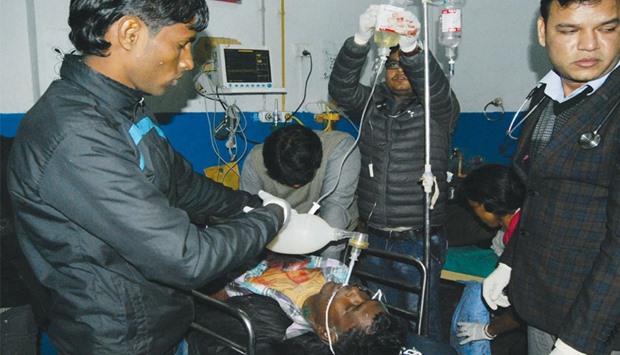Nepal has been in turmoil since adopting its first republican constitution last September, with protesters in the lowland south saying the charter deprives them of a fair say in how the country is run.
They have prevented supply trucks from entering from India and choked the landlocked Himalayan nation with a fuel shortage.
Two people were killed at Rangeli, 215km southeast of Kathmandu, when police fired at ethnic Madhesi activists to stop them from disrupting a gathering organised by the youth wing of prime minister K P Oli’s political party.
Eight others were also injured in the firing, according to Devi Bahadur Bhandari, assistant district administrator of Morang district where Rangeli is located. It was the first deadly incident in more than a month.
“Action became necessary to prevent clashes between the two groups that could have resulted in bigger casualties,” he said.
A third person was shot dead at nearby Gainiya, police official Kamal Singh Bam said. More than 50 people have died since protests began four months ago.
The United Madhesi Front, which is leading the protests, wants state boundaries to be redrawn to give their communities more power. The Front said this week that talks with government negotiators that started two weeks ago had become “meaningless”.
The Madhesi community in Nepal’s lowlands, many of whom trace their origins to India, are battling upper-caste elites from the hills who control the country’s main political parties.
Nepal is recovering from two devastating earthquakes that killed nearly 9,000 people last year. Fuel shortages have slowed relief to thousands of quake survivors staying in temporary huts built with tarps and tin sheets.
Nepal’s parliament is due tomorrow to propose a constitutional amendment to revise the federal demarcation - a move that Morcha says isn’t enough to grant autonomy to the Madheshis, who also want changes in delineation of electoral constituencies. India has restricted its trade with Nepal since September, citing security concerns over the protests.

